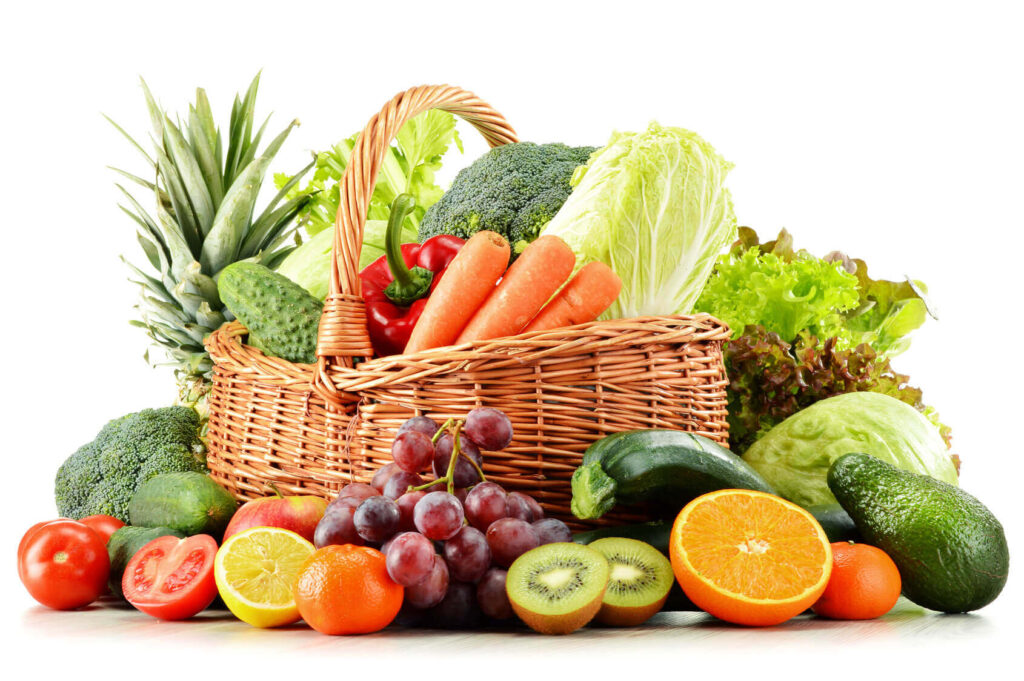Pregnancy is the most exciting phase of a woman’s life. Yet, it poses several challenges to expecting mothers. Since it’s now a matter of two lives together, the need to care and nurture the baby and mother both increases. From levels of sugar in the blood to iron content, everything needs to be now balanced as per the fetal requirement.
Among such intricacies, one is maintaining the Hemoglobin (Hb) level during pregnancy. Hemoglobin is a protein molecule present in the red blood cells and contains iron as a primary component. It carries oxygen from the lungs to the tissues and carbon dioxide from tissues to the lungs. With such an important function to perform, the role of Hb in the blood is quite evident.
A pregnant mother needs more oxygen, hence the need for Hemoglobin increases during this state. The normal range of Hb in a woman’s blood is 12 to 16 g/dl. The Hb level usually falls during gestation and reaches to 10.5 g/dl. This is because of the fact that the blood volume increases by 50% to provide essential nutrients to the developing fetus.
As the blood volume increases, the concentration of RBCs decreases, causing the Hb level to drop. This situation is alarming for both mother and fetus, as it may lead to several complications during pregnancy and even after birth.
Table of Contents
Effects of Low Hb during Pregnancy
Though Hb levels dropping to 10.5 g/dl is a common observation, but it requires to be improved around the 8th week of pregnancy. If the Hb level continues to decline, then it may cause various complications for mother and baby both.
The expecting Moms are usually found to be mild Anemic due to low Hb or, in other words, low iron levels. Mild anemia can be treated easily by providing iron, vitamin B12, and folic acid to pregnant women. But if Hb level is still low, anemia may cause a Mom-to-be to feel:
- More tired than usual
- Dizziness
- Weakness
- Pale lips and skin
- Shortness of breath
- Increased heart rate
- Cold hands and feet
In case of seriously declining Hb levels even below 6 g/dl, the expecting mother will be seriously at risk of Angina. It results in severe chest pain moving towards arms and shoulders and causing Moms to be unrested.
Anemia, if severe, causes amniotic fluid to decrease around the baby. This may pose various threats to the health of mother and baby. There are chances of:
- Early delivery of the baby
- Miscarriage
- A baby born with low birth weight
- Heavy loss of blood during delivery
- Blood transfusions, as a result of the previously mentioned problem
- Baby born with Anemia
How to Improve Hemoglobin Levels during Pregnancy
Combating with low Hb levels is possible if it is under a controllable range. The management of the Hb level is possible in the following basic ways:
1. Eating Healthy Diet
Whatever a mother does during pregnancy, it affects the growing baby inside the womb. Eating a healthy diet is therefore recommended to ensure the strong health of the baby upon birth.
It is advisable to avoid medications as much as possible in order to improve the levels of Hb during pregnancy. Medicines, though quite potent and effective, still produce side effects that may also harm the baby.
The declining level of Hemoglobin is manageable through a healthy diet. There are a number of food staples that are natural sources of iron, vitamins and folic acid. A balanced intake of these nutrients is essentially important for the development of fetal organs, alongside balancing Hb in blood.
Iron-rich Foods
Since Hemoglobin is composed of iron, relying on an iron-rich diet is highly recommended. Every expecting mother must include the following sources of iron in her diet plan during pregnancy:
Leafy vegetables
Green leafy vegetables are famous for their richness in iron. Spinach, fenugreek leaves, broccoli, cauliflower, coriander, and mint are all powerhouses of iron. Not just effective in making more iron in the blood, they are also important sources of folate, fiber, Vitamin A, and E.
Vegetarian mothers can enjoy a variety of recipes with these leafy vegetables ensuring a balanced intake of calories and iron. For instance, half a cup of cooked spinach is found to have 3.2 mg of iron.
But the effectiveness of these vegetables is more when used in raw form. Excessive cooking may damage the iron content and may not remain as potent.
Fruits

Fruits are another blessings rich with multiple essential nutrients.
Apple is famous for its iron content that is equally potent for everyone in daily use. Who is not aware of the famous saying “an apple a day keeps the doctor away”. This is indeed a fact particularly when the iron level is dropping off in the mother’s blood. That’s why during pregnancy, this fruit must be made an essential item of the food menu.
Pomegranate, watermelon, banana, grapefruits, peach, guava, lychees and strawberries are all the best sources of iron to maintain hemoglobin levels during pregnancy.
Watermelon has a soothing effect that quenches thirst and produces a calming effect on the mother. When used with pomegranate juice, watermelon is reported to be potent in increasing hemoglobin levels.
There are certain occasions during gestation where the mother doesn’t feel like eating anything. Instead of completely cutting off in such a case, fresh juice of iron-rich fruits is also helpful. Apricot and orange are the best examples in this regard. Half a cup of apple juice twice a day can do wonders with maintaining hemoglobin levels.
But still, juices can’t compensate for the whole fruit. The benefits of eating fruits are definitely higher and recommended.
It is recommended to keep five portions of fruits and vegetables in a diet daily during pregnancy. Fruits are rich in iron, potassium, calcium, carbohydrates and multiple types of vitamins too. Therefore, picking the right fruit type in case of anemia will be very useful to combat iron deficiency.
Vegetables
If the expecting mother is a vegetarian, dealing with hemoglobin will be quite easier. Vegetables like potato, beetroot, bell pepper, pumpkin, green peas and tomatoes are all enriched with iron and carbohydrates.
Fruits and vegetable salad is an interesting and delicious way to enjoy the food as well as balancing the nutritional requirement during pregnancy. Beetroot is a rich source of iron. In fact, half a cup of beetroot juice can also be taken twice daily.
Pumpkin seeds are also advised to be eaten when hemoglobin deficiency is diagnosed. One-fourth cup of pumpkin seeds contains 8.6 mg of iron. These seeds also contain Omega-3 fatty acids which are essentially required for fetal development.
Vitamin C
https://www.youtube.com/watch?v=pVKPjdF-IH0&ab_channel=QuicksilverScientific
Vitamin C aids in iron absorption. When an iron-rich diet is taken, it is important to supplement it with food staples rich in vitamin C. It is found in citrus fruits like lemon, orange, strawberries, asparagus. Tomatoes and broccoli can also serve the same purpose.
The deficiency of vitamin C is a major precursor for hemoglobin deficiency. As mentioned earlier, the lesser amount of vitamin C is available in the body, the iron absorption will be delayed causing Hb to drop immediately. Therefore, dietary sources rich in vitamin C must be taken regularly during this period.
Non-Vegetable Sources
Vegetables and fruits are not the only natural sources of iron. Non-vegetarian foodstuff is found to be as efficient. Whole eggs, chicken, red meat, and seafood have always been helpful information about iron in the blood.
Non-veg Moms must incorporate meat into their diet. Red meat is a source of heme iron, which is easily absorbed. Three ounces of red meat carries 3 mg of iron.
White meat is also important to be taken for balancing iron levels in the blood. Chicken and turkey are good choices to be incorporated into a diet plan for a pregnant woman.
The daily iron intake can be supplemented with seafood too. Salmon and prawns are proven to satisfy the requirement of iron intake during pregnancy. On the other hand, these are rich in Omega 3 fatty acids which are essentially required for a growing baby. Seafood can be cooked in various ways to soothe the taste buds while dealing with the typical food craving problem during pregnancy.
Folic acid
Folic acid is one such essential nutrient that must be present in recommended levels in the mother’s blood to help avoid birth defects among the fetus. The recommended dosage for Folic acid intake in a pregnant woman is 400 mcg per day.
Though folic acid supplements are usually advised by the doctors, but there’s no substitute of a natural source. Beetroot is at the top of the list with its highest folate content. Egg yolk, chicken, banana, guava, orange, melon, pomegranate and dates are must option for an expecting mom’s diet.
Dates, not just rich in folic acid, but also contain vitamin A, vitamin B, calcium, magnesium and potassium. Thus they can be used as a complete meal to regain energy as well as maintaining the essential nutrient level in the blood of the mother.
The intake of folic acid should not be compromised at all during pregnancy. Folic acid deficiency may also lead to malformations and defected birth.
Dry fruits
Munching dry fruits can be a good way to soothe the taste buds and maintain hemoglobin levels during pregnancy. Dried apricots, raisins, and almonds are recommended to maintain the good health of the mother while carrying a baby inside her womb.
Legumes and grains
Legumes and grains can’t be forgotten while discussing the natural sources for iron. All types of legumes are the best sources of proteins, iron, and minerals that are important for cell regeneration and baby growth.
Red kidney beans, soya beans, lentils, chickpeas, brown rice are all rich sources of iron and must be taken regularly by a Mom-to-be.
It is noteworthy that one cup of lentils contains 6.6 mg of iron. Kidney beans are next in this line with 5.2 mg of iron per cup of them. One cup of chickpeas provides an iron content of 4.8 mg.
2. Exercise
Relying on a diet is not the only way to manage the declining levels of hemoglobin in
pregnant women. Hemoglobin is produced more in blood when one exercise.
Hence moderate to heavy exercises are recommended during pregnancy.
3. Taking Iron Supplements
At times, iron supplements seem to be a mandatory choice for improving hemoglobin levels during pregnancy. Iron and folate supplements are common for this purpose. Usually, the iron supplements provide 30 mg of iron. But they should only be used after a doctor’s recommendation. Self-medication and use of over-the-counter drugs must be avoided during gestation.
Vegetarian mothers are also advised to take vitamin B12 supplements too.
Precautions while dealing with Hemoglobin Deficiency during Pregnancy
While opting for ways to improve the Hb levels in a mother’s blood, it is important to be cautious about certain facts that may lead to any further health complications.
Avoid Foods that Interfere with the Absorption of Iron
There are certain types of food staples that may hinder iron absorption and therefore must be avoided.
Among such stuff, tea and caffeine are at the top. Cold drinks and beer are second to the list. Various types of Pasta and wheat products also create hurdles with iron absorption. Milk products, though rich in calcium, but may delay iron assimilation.
Though the liver contains the highest amount of iron content, but it must be strictly avoided during pregnancy. It also contains vitamin A which in higher levels may harm the baby growth.
Understanding the Risks of Excessive Iron
Once diagnosed with anemia, expecting mothers may undergo stress and depression. Overwhelmed with the idea to treat anemia, such mothers may take iron excessively. It is important to understand that iron is required in recommended levels. Higher levels may cause issues like:
- Gestational Diabetes
- Miscarriage
- Preeclampsia
Conclusion
Pregnancy is the span when the mother and baby both demand special care and attention. The growing baby inside the mother deserves good health upon birth. Balanced levels of Hemoglobin in a mother’s blood is one of the most significant requirements for a healthy pregnancy and a healthy baby.
Since the mother’s blood volume increases during pregnancy, the requirement for oxygen intake increases that ultimately demands more iron. This article has shed light on various ways of improving Hb levels during pregnancy.
The author stresses the need to rely on natural sources of iron and folic acid to meet the requirement of hemoglobin. A balanced and healthy diet can save the new life from many health disorders and malformations. A little knowledge and understanding about the importance of Hemoglobin during pregnancy can help mothers manage with iron levels right from the beginning of pregnancy.
This blog post is a useful resource for all new Mummies-to-be!
Self Improvement from SelfGrowth.com is the most complete guide to information about Self Improvement on the Internet.



